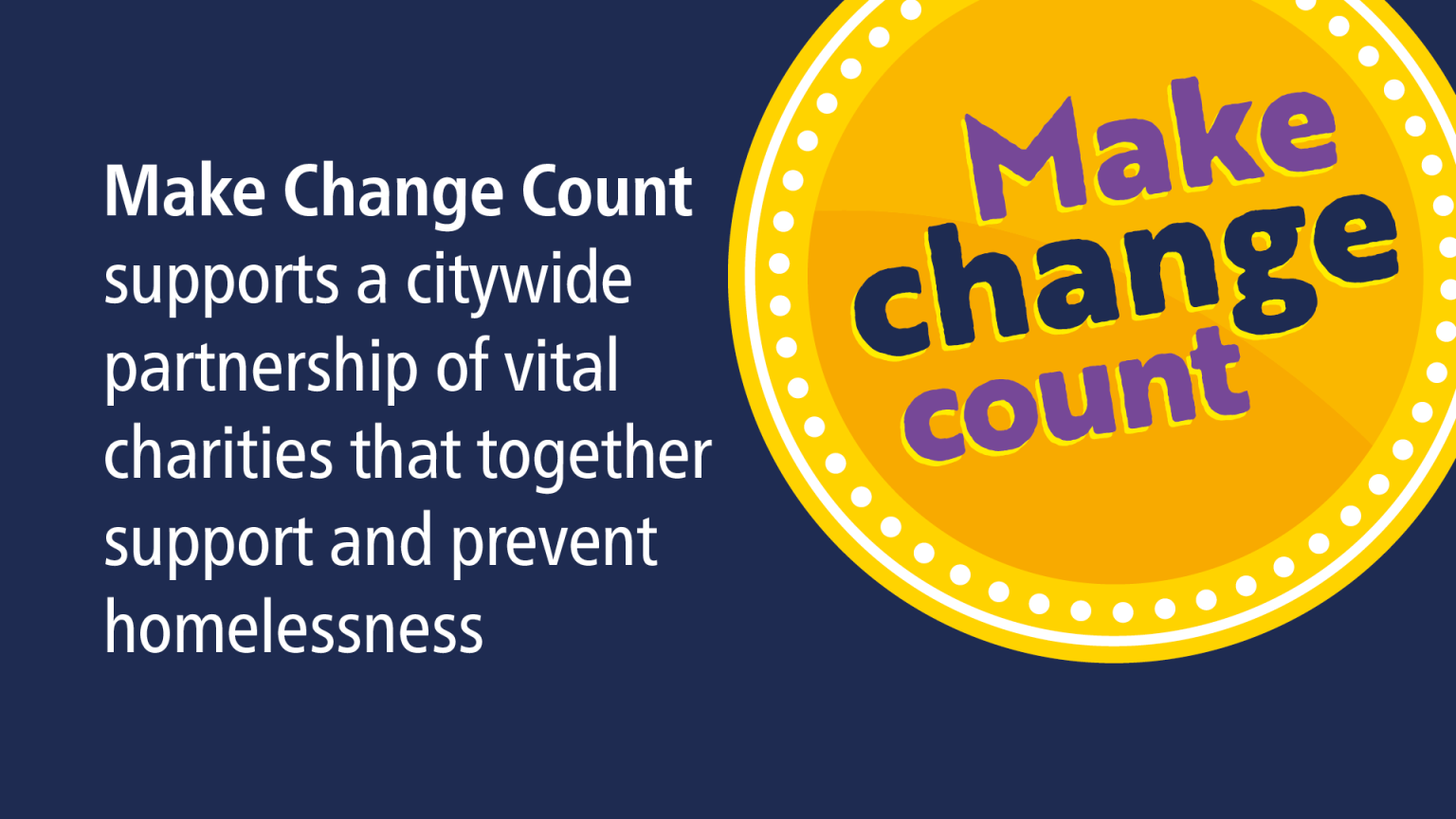Concerned about vulnerable rough sleepers? Make Change Count is a great way to help everyone experiencing homelessness.
As the national cost of living crisis continues to bite, support for vulnerable rough sleepers remains as vital as ever. People are experiencing greater hardship, especially the most vulnerable in our community.
The Homelessness Monitor: England 2023 (a Longitudinal study by Crisis) shows a 26% increase in rough sleeping in England from Nov 2022-2023. But rough sleepers represent less than 10% on the homeless population.
Homelessness overall is predicted to be 20% higher in 2024 than 2020 levels, fuelled by the cost of living crisis, rising private rents (and evictions), and declining social rented lettings. People are experiencing greater hardship, especially the most vulnerable in our community.
Running since 2016, Make Change Count is the city’s combined fundraising campaign that provides much needed funds to local charities who support and prevent homelessness.
You can donate to our JustGiving page here.
Make Change Count does 3 things:
1. It offers a great alternative for people who want to give change to rough sleepers, but recognise that their money can do more.
2. It facilitates the professional help that is needed to give a homeless person the best chance to get off the streets and into safety.
3. It supports vital charities in the city who work together to provide effective support.
The charities Make Change Count supports are:
- Antifreeze - Off the Fence Trust's afternoon and evening outreach - consisting of a day centre with IT, clothing, essential hygiene, laundry and shower facilities and a structured, progressive approach to enabling restoration and independence for those experiencing homelessness.
- BHT Sussex - provides services to people who are experiencing street homelessness, which help them to access accommodation, improve their physical and mental health and address any addiction issues. We carry out this work via our day centre, supported accommodation and homeless prevention teams.
- Equinox – Brighton Women’s Service provide trauma informed supported accommodation to women experiencing homelessness and multiple disadvantages.
- YMCA Brighton - has been providing essential support services in Brighton & Hove since 1870, making them the city’s oldest housing charity, having evolved to serve an average of 400 people annually across multiple supported accommodation projects and a personalised coaching service. YMCA Brighton provide advice, support, guidance, accommodation, training and education for adults and young people who would otherwise be homeless.
- Sussex Nightstop - provides same-day emergency overnight stays to young people aged 16-25 experiencing homelessness. They offer safe, welcoming places to stay through their volunteer host network - people with a spare room to offer and a desire to help - which prevents rough sleeping and the dangers associated with it.
- The Clock Tower Sanctuary – Brighton & Hove's only day centre for 16-25 year olds experiencing homelessness. Based in central Brighton, it's a safe place where young people who have nowhere to call home can get their immediate needs met for food, showers, clean clothes and access to longer term support.
- YMCA Downslink Group - is the largest regional charity in Sussex and Surrey working to prevent youth homelessness and support children and young people’s emotional and mental health. They do this by providing a safe home, increasing life skills and self-confidence, and improving emotional wellbeing and mental health.
- Change Grow Live - provide support to homeless people in Brighton & Hove. They help them to move away from the streets and access services that can help them. They also provide ongoing support and help people reduce their chance of repeat homelessness.
Every penny donated to the campaign goes directly to people in need - no funds raised are used by any of the charities for administration and they all contribute to the campaign at no cost.
Outreach workers and street services guide people to access the right accommodation, where they will be further helped on a one-to-one basis to recover physically and mentally from the trauma of rough sleeping.
People need help and support to adapt to living in new ways. Helping people away from rough sleeping takes time and compassion.
Contributions are then used to provide food, access to shower facilities, healthcare, clothing and a wide range of practical help, based on individual needs.


